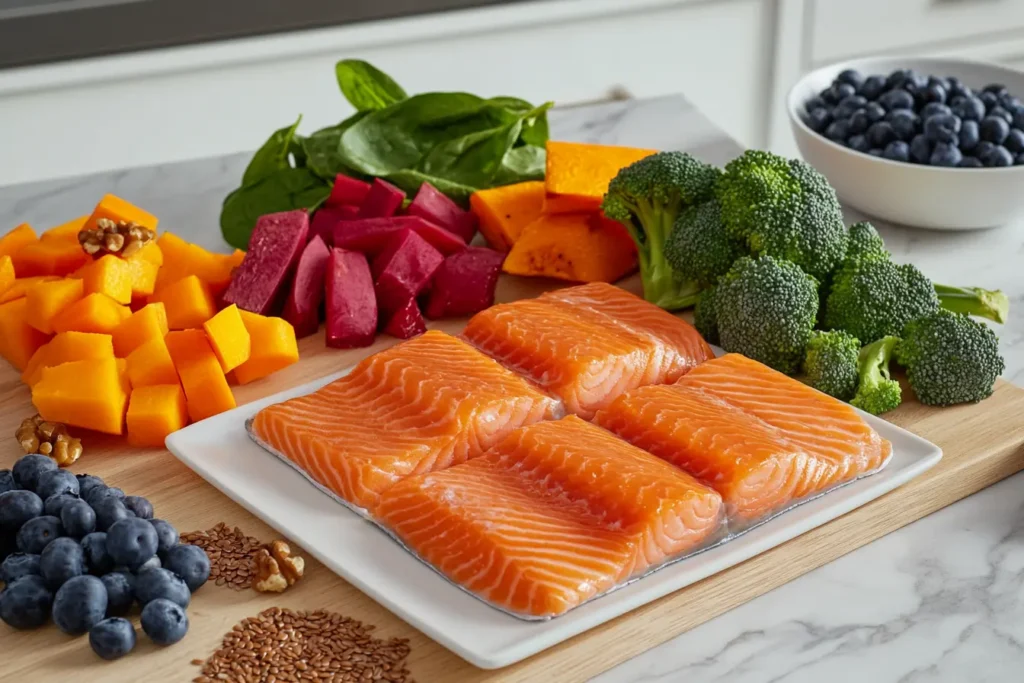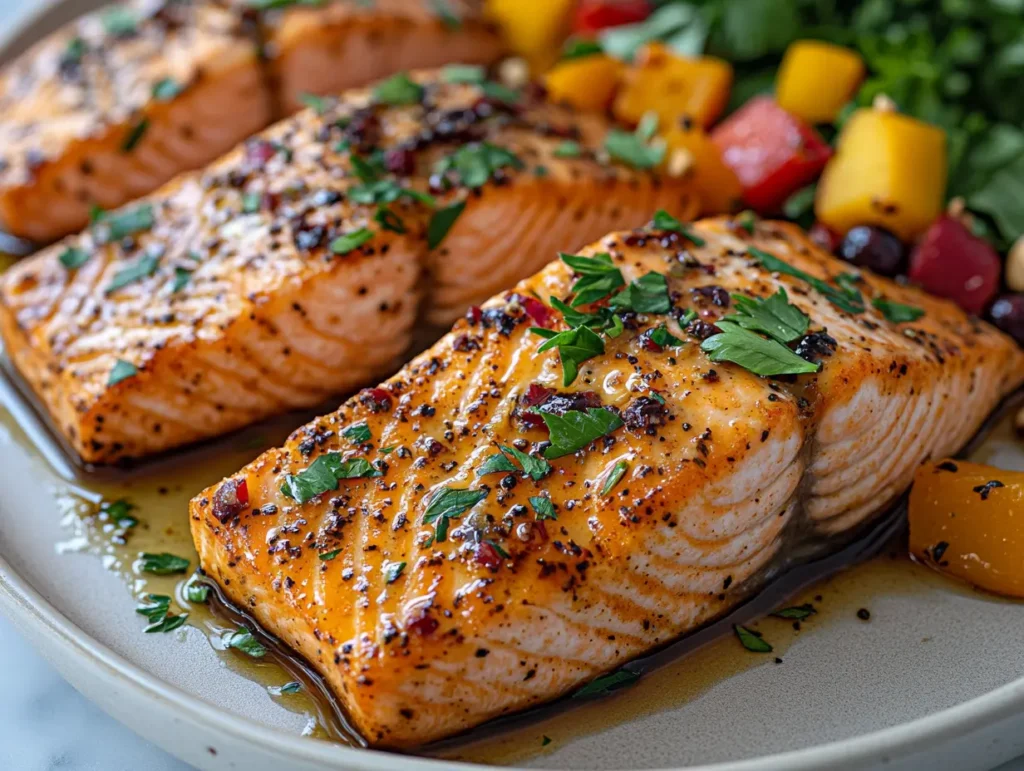Does carnivore diet affect sperm quality? That’s a big question for many, and it deserves some real attention. This article will delve into what the research says, explore potential impacts, and give you some solid info.
Table of Contents
The Carnivore Diet and Male Fertility
The carnivore diet, you know, the one where you basically eat only animal products, has gained popularity. However, its effects on various aspects of health, including male fertility, remain a topic of debate. Understanding how diet impacts sperm is crucial, and let’s face it, some diets are more restrictive than others. So, does this specific diet have an impact?
Understanding the Carnivore Diet
Before we dive into fertility, it’s important to know exactly what the carnivore diet entails. It involves the consumption of only animal products – meat, fish, eggs, and some animal fats. Things like fruits, vegetables, grains, and even dairy are typically excluded. This restriction can lead to nutritional concerns, therefore, we must explore these implications closely. The carnivore diet, you see, is a significant deviation from traditional dietary recommendations.
How Diet Impacts Sperm Health
A man’s diet, honestly, plays a very significant role in his overall health, and this certainly includes sperm health. Nutrients, antioxidants, and vitamins affect sperm count, mobility, and morphology. Therefore, a well-balanced diet is generally considered beneficial. But what about a diet that drastically limits food groups? Does that mean the carnivore diet affects sperm? Let’s explore more. Furthermore, the impact of diet on sperm health is a continuous area of research.
Does Carnivore Diet Affect Sperm Quality?
Now we get to the crux of the matter. Does the carnivore diet impact sperm quality? Honestly, the research on this is pretty limited. There is not a massive amount of information directly connecting this specific diet to sperm quality. However, we can consider the possible implications based on our knowledge about nutrition and male fertility. Therefore, caution is warranted when thinking about this particular dietary approach.
Possible Positive Impacts
Some might suggest that the carnivore diet, which is high in protein and fat, could benefit male fertility. Meat, you know, is a good source of zinc, which is vital for sperm production and testosterone levels. Additionally, these diets are low in processed foods which might be a plus for some. However, a focus on this type of dietary approach without additional input might create issues as well. Moreover, the absence of processed foods could reduce inflammation in some people.
Potential Negative Impacts
The restricted nature of a carnivore diet could also pose some problems. The lack of fruits, vegetables, and whole grains could result in deficiencies in key nutrients, such as vitamins C, E, folate, and certain antioxidants. These antioxidants are known to protect sperm from oxidative damage. Therefore, the diet, especially one without supplements, could negatively affect sperm. Specifically, the impact on sperm motility might be a concern.
The absence of plant-based foods in the carnivore diet might create a deficit of crucial micronutrients. For example, folate, which is plentiful in leafy greens, is important for DNA synthesis during sperm development. Additionally, vitamin C, found abundantly in fruits, is an antioxidant that helps protect sperm cells from damage. Therefore, the carnivore diet could have a negative effect on this front. Likewise, deficiencies in vitamins could also lead to decreased sperm production.
The lack of fiber on a carnivore diet can also affect hormonal balance. Fiber helps regulate blood sugar levels, and it binds to excess estrogen in the gut. Imbalances in hormones can affect fertility, therefore, we can’t ignore the impact of dietary fiber. So you see, the carnivore diet’s restriction could unintentionally create an issue here. Consequently, this could disrupt the delicate balance necessary for optimal reproductive function.
The Role of Antioxidants
Let’s delve deeper into the importance of antioxidants. These compounds play a crucial role in protecting sperm from oxidative stress, a condition where harmful free radicals damage cells. Consequently, the absence of many antioxidants, often found in plant foods, in the carnivore diet might be a significant concern. Therefore, supplementing with antioxidants may be a necessity if you choose this dietary path.
Oxidative Stress and Sperm
Oxidative stress is a major contributor to male infertility. It can damage sperm DNA, impair motility, and reduce sperm count. Hence, a diet rich in antioxidants is essential to counteract these effects. Furthermore, this aspect is often overlooked when discussing restrictive diets such as the carnivore diet. Indeed, a lack of antioxidant support could create problems with sperm quality.
Food Sources of Antioxidants
Fruits, vegetables, and nuts are packed with antioxidants, including vitamins C and E, selenium, and various phytonutrients. These compounds work together to neutralize free radicals and protect sperm cells. Therefore, when excluding these foods from your diet, like the carnivore diet does, one is depriving their body of crucial antioxidant support. Accordingly, a balanced approach is generally a more sound strategy.
Hormonal Balance and the Carnivore Diet
The carnivore diet can affect hormonal balance through a variety of mechanisms. The restriction of carbohydrates and the changes in fat intake can have a significant impact on hormone levels, which can then indirectly influence sperm health. Thus, understanding these relationships is vital. Specifically, the focus on animal-based fat intake could change the way some hormones are processed in the body.
Testosterone and Diet
Testosterone, you know, is a crucial hormone for male fertility, and it’s influenced by diet. While protein from meat is needed for its production, other factors can also impact it. A diet that is too low in carbohydrates, like the carnivore diet, could lead to fluctuations in insulin, which can affect testosterone synthesis. Therefore, a balanced macronutrient intake is often recommended for optimal testosterone levels.
Estrogen Levels and Fiber
As mentioned, fiber plays a role in managing estrogen levels. High estrogen levels in men can impair sperm production and quality. Thus, the lack of fiber in the carnivore diet can be a concern. Accordingly, the absence of plant fibers might affect hormone balance. Consequently, it is important to consider these factors when thinking about adopting such a restrictive dietary approach.
Potential Long-Term Effects
The long-term effects of the carnivore diet on male fertility are also an important consideration. There is not enough data on the long-term impacts, and the concerns surrounding micronutrient deficiencies and hormonal imbalances may accumulate over time. Indeed, it is prudent to consider these potential effects before adopting such a diet long term. Moreover, the absence of certain food groups can affect gut health, which could also have downstream effects.
Gut Health and Fertility
Gut health, let’s face it, is closely linked to overall health, and it can also influence fertility. The gut microbiome affects hormone regulation, inflammation, and nutrient absorption. Therefore, a diet that lacks prebiotic fiber from plant sources may disrupt the gut microbiome, with indirect effects on sperm health. Thus, the impact of the carnivore diet on gut health is another factor to consider.
The Importance of Diversity in Diet
A diverse diet ensures you get all the nutrients you need. Restricting your diet, as is the case with the carnivore diet, can lead to deficiencies and imbalances. It’s like putting all your eggs in one basket, and that basket has holes in it! Therefore, it might be best to have a diet that includes a wide variety of food groups. Accordingly, this ensures a better chance of getting all necessary nutrients.
Monitoring Your Health
If you choose to try the carnivore diet, it is particularly important to monitor your health closely. Regular check-ups, blood tests, and tracking any changes in your overall well-being are essential. This will help identify potential problems early on. Furthermore, consulting a healthcare professional or registered dietitian can provide tailored guidance. Hence, this approach would be a more proactive step.
Further Research
As research continues to evolve, we may gain more insight into the direct impact of the carnivore diet on sperm health. However, until then, we must rely on what we currently know about nutrition and male fertility. Specifically, more long-term studies are needed. In addition, it’s always crucial to stay informed about the latest findings.
Current Gaps in Knowledge
Much of the current data regarding the carnivore diet and male fertility is limited to observational studies. These studies can provide valuable insights but often lack the scientific rigor of controlled experiments. Therefore, there is a pressing need for more well-designed clinical trials. Indeed, robust studies are necessary before any concrete conclusions can be drawn.
Areas for Future Studies
Future research should investigate the impact of the carnivore diet on various aspects of sperm health, including count, motility, morphology, and DNA integrity. These studies should also examine hormone levels and gut microbiome health. Hence, a comprehensive understanding requires exploring multiple aspects of male health. Therefore, these insights will be crucial for making dietary recommendations.
Adapting the Recipe for Fertility Enhancement
Let’s take our Honey-Glazed Salmon recipe a step further. The nutrients from this dish are already geared towards supporting male fertility, but we can explore a few tweaks to further boost its benefits. We want to make the dish more nutritious, delicious, and most importantly fertility-enhancing. Specifically, we can maximize the nutrients that help with sperm health.
Enhancing Omega-3 Content
Besides salmon, adding other omega-3-rich foods like flaxseeds to the recipe can help enhance the benefits. Additionally, you could add a light drizzle of flaxseed oil or include a sprinkle of chia seeds over the cooked meal. Moreover, incorporating more of these healthy fats is generally a good idea. Therefore, this would further boost the nutritional profile.
Adding More Antioxidants
While we have the colorful vegetables, we could also include more antioxidant rich ingredients. Adding some blueberries or a few walnuts to the side can be a great addition. Also, consider some dark leafy greens like spinach as a side dish. Specifically, this would give a greater antioxidant punch. Therefore, this will help protect sperm from oxidative damage.
The Importance of Variety

Remember, as we’ve discussed, variety is key for overall health. While our core recipe is excellent, exploring additional fertility-supporting recipes can diversify your nutrient intake. Thus, including different foods will provide a more balanced and comprehensive nutrient profile. Accordingly, varying your food can ensure that you get the full range of benefits.
Honey-Glazed Salmon with Roasted Veggies & Superfood Garnish
Updated Recipe Ingredients:
- 2 salmon fillets (about 6 oz each)
- 1 tablespoon olive oil
- 1 tablespoon honey
- 1 teaspoon soy sauce (low sodium)
- 1/2 teaspoon garlic powder
- 1/4 teaspoon black pepper
- 1 red bell pepper, cut into chunks
- 1 yellow bell pepper, cut into chunks
- 1 medium red onion, cut into wedges
- 1 cup broccoli florets
- 1 sweet potato, peeled and cubed
- 1/2 teaspoon salt
- 1/4 teaspoon dried thyme
- 1/4 cup chopped fresh parsley
- 1 tablespoon flaxseeds (added for omega-3s)
- 1/4 cup blueberries (added antioxidants)
- 1/4 cup walnuts (added antioxidants and Omega-3)
- 1 cup spinach steamed (additional vitamins)
Updated Instructions:
- Preheat the oven to 400°F (200°C).
- In a small bowl, whisk together the olive oil, honey, soy sauce, garlic powder, and black pepper.
- Place the salmon fillets on a baking sheet lined with parchment paper.
- Brush the honey glaze over the salmon.
- In a large bowl, toss the bell peppers, red onion, broccoli, and sweet potato with olive oil, salt, and thyme.
- Spread the vegetables around the salmon on the baking sheet.
- Bake in the preheated oven for 15-20 minutes, or until the salmon is cooked through and the vegetables are tender.
- Steam Spinach in a small pan.
- Garnish with fresh parsley, flaxseeds, blueberries and walnuts before serving alongside the spinach.

Final Thoughts
While the carnivore diet might offer some benefits, it’s not the most suitable approach for everyone, especially those concerned with male fertility. A more balanced dietary approach is usually better, you know? And honestly, if you’re thinking about making a major change to your diet, it is best to talk with a doctor or a registered dietician.
Frequently Asked Questions (FAQs)
Let’s tackle some common questions people have about diet and sperm health, you know, the things people often ask.
Does eating meat affect sperm?
Eating meat, in moderation, can be part of a healthy diet that supports sperm health. However, it’s important to balance meat intake with other nutrient-rich foods. The carnivore diet, which is solely meat-based, might have some drawbacks and may not provide all necessary nutrients.
What weakens a man’s sperm?
Several factors can weaken sperm, including a poor diet, smoking, excessive alcohol use, drug use, stress, and lack of sleep. Exposure to toxins and certain medical conditions can also have an impact. Therefore, a holistic approach is crucial for optimizing sperm health, and we must always consider how the carnivore diet may impact these various factors.
Can a man’s diet affect his sperm?
Absolutely. A man’s diet plays a significant role in his sperm health. Nutrients, antioxidants, and vitamins all influence sperm count, motility, and morphology. Therefore, a varied and balanced diet that includes fruits, vegetables, whole grains, lean proteins, and healthy fats is generally considered beneficial. Let’s face it, the carnivore diet’s restriction can limit these benefits.
Which diet is best for sperm count?
There is no single “best” diet, but a diet rich in whole foods, including plenty of fruits and vegetables, lean proteins, and healthy fats, is typically recommended. The Mediterranean diet, for example, is often cited for its health benefits. The carnivore diet’s restriction could actually result in deficiencies that negatively impact sperm health.
Conclusion: Does Carnivore Diet Affect Sperm? Exploring Fertility
So, does the carnivore diet affect sperm? The truth is, there isn’t enough direct research to say definitively. However, the restrictive nature of the carnivore diet could lead to nutritional deficiencies that may potentially impact sperm quality. A well-rounded and nutrient-dense diet is generally more supportive of male fertility. While the carnivore diet may offer certain health benefits, it might not be the best approach for everyone—especially for those concerned about fertility. Considering a more balanced and varied diet could be a wiser choice for long-term health.
If you’re exploring the carnivore lifestyle, it’s important to approach it thoughtfully. Start your day with a nutrient-dense carnivore diet breakfast plate to ensure you’re getting essential fats and proteins. Curious about how the carnivore diet might interact with reproductive health? Check out this guide on birth control and the carnivore diet for more insights.
For those craving something sweet while staying on track, explore creative ways to satisfy your cravings with carnivore-friendly desserts. And if you’re thinking about expanding your diet, learn whether popular foods like crescent rolls are healthy or if egg rolls are good for weight loss.
Ultimately, finding a diet that aligns with your health goals and supports overall wellness is key. Stay informed and make choices that nourish your body and mind!
Print
Honey-Glazed Salmon with Roasted Veggies & Superfood Garnish
- Total Time: TT25-30
- Yield: 2 servings 1x
- Diet: Low Lactose
Description
This Honey-Glazed Salmon is a flavorful and nutritious dish, featuring omega-3-rich salmon, roasted vegetables, and a boost of superfoods like flaxseeds, blueberries, and walnuts for added antioxidants and heart health benefits.
Ingredients
- 2 salmon fillets (about 6 oz each)
- 1 tablespoon olive oil
- 1 tablespoon honey
- 1 teaspoon soy sauce (low sodium)
- 1/2 teaspoon garlic powder
- 1/4 teaspoon black pepper
- 1 red bell pepper, (cut into chunks)
- 1 yellow bell pepper, (cut into chunks)
- 1 medium red onion, (cut into wedges)
- 1 cup broccoli florets
- 1 sweet potato, (peeled and cubed)
- 1/2 teaspoon salt
- 1/4 teaspoon dried thyme
- 1/4 cup chopped fresh parsley
- 1 tablespoon flaxseeds (added for omega-3s)
- 1/4 cup blueberries (added antioxidants)
- 1/4 cup walnuts (added antioxidants and Omega-3s)
- 1 cup spinach, (steamed for additional vitamins)
Instructions
- Preheat the oven to 400°F (200°C).
- In a small bowl, whisk together the olive oil, honey, soy sauce, garlic powder, and black pepper.
- Place the salmon fillets on a baking sheet lined with parchment paper.
- Brush the honey glaze evenly over the salmon fillets.
- In a large bowl, toss the bell peppers, red onion, broccoli, and sweet potato with olive oil, salt, and thyme.
- Spread the vegetables around the salmon on the baking sheet.
- Bake for 15-20 minutes, or until the salmon is cooked through and the vegetables are tender.
- While baking, steam the spinach in a small pan.
- Garnish with fresh parsley, flaxseeds, blueberries, and walnuts before serving alongside the spinach.
Notes
- You can swap sweet potatoes for butternut squash for a lower-carb option.
- For extra crunch, toast the walnuts before adding them to the dish.
- Pair this with quinoa or brown rice for additional fiber and nutrients.
- Prep Time: PT10M
- Cook Time: CT15-20M
- Category: Dinner
- Method: Baking, Roasting
- Cuisine: Healthy, Mediterranean-inspired
Nutrition
- Serving Size: 1 Salmon Fillet
- Calories: 450 kcal
- Sugar: 10 g
- Sodium: 300mg
- Fat: 20 g
- Saturated Fat: 3g
- Unsaturated Fat: 15g
- Trans Fat: 0 g
- Carbohydrates: 35g
- Fiber: 6g
- Protein: 40g
- Cholesterol: 60mg
